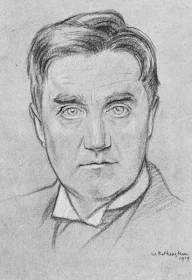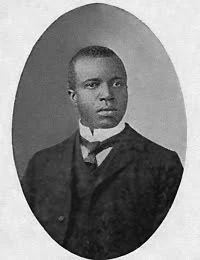 One of the more condescending arguments used by sufferers from religion, and ranking alongside their claim to hold a monopoly on morality for demonstrably unjustified arrogance, is that without religion we wouldn't have great works of art, music, etc., because only religion can inspire human beings to artistic creativity.
One of the more condescending arguments used by sufferers from religion, and ranking alongside their claim to hold a monopoly on morality for demonstrably unjustified arrogance, is that without religion we wouldn't have great works of art, music, etc., because only religion can inspire human beings to artistic creativity.While there can be little doubt that religious subjects were often the subject of great works of art or musical composition - the breath-taking beauty of Handel's Messiah and Van Gough's "The Sower" spring to mind. (Some might struggle to see the religion in Van Gough's works but it absolutely pervades it. Look at the painting on the right. It's one of Vincent van Gough's most profoundly religious paintings, in my opinion).
I'll maybe write a blog about Atheist artists one day. This one is about Atheist composers.
It will probably come as a surprise to religion sufferers who like to pretend their co-superstitionists have a monopoly on artistic creativity that there is an enormous list of Atheist and non-believer composers, and that many of them wrote 'religious' music. Some of them, like Elgar and Mozart lost faith in later life, so whatever religious beliefs may have inspired their earlier works, they clearly never inspired them to remain religious.
This list includes many of the better-known Atheist composers and songwriters. Enjoy listening to music not inspired by superstitious belief in gods.
 | Giuseppe Verdi10 October 1813 – 27 January 1901Italian Romantic Composer |
Irving BerlinMay 11, 1888 – September 22, 1989Russian-born American composer and lyricist widely considered one of America's greatest songwriters. |  |
 | Aaron Copeland14 November 1900 – 2 December 1990American composer, composition teacher, writer and conductor.
|
John Lennon9 October 1940 – 8 December 1980British popular musician, singer and songwriter. |  |
 | Sir Edward Elgar2 June 1857 – 23 February 1934English classical composer (Former Roman Catholic who became an Atheist in later life) |
Wolfgang Amadeus Mozart27 January 1756 – 5 December 1791Austrian classical baroque composer
|  |
 | Ludwig van Beethoven16 December 1770 – 26 March 1827German composer, transitional between European Classical and Romantic. |
George Gershwin26 September 1898 – 11 July 1937American popular songwriter and classical composer. |  |
 | Johannes Brahms7 May 1833 – 3 April 1897German-born Romantic composer who worked in Vienna, Austria. |
Ralph Vaughan Williams12 October 1872 – 26 August 1958English classical composer, hymn writer and collector of English folk song. Great nephew of Charles Darwin. |  |
 | Maurice Ravel7 March 1875 – 28 December 1937French composer probably (though he denied it) influence by the Impressionist art movement. |
Gioachino Rossini29 February 1792 – 13 November 1868Italian composer of opera, 'sacred' and chamber music. |  |
 | Hector Berlioz11 December 1803 – 8 March 1869French Romantic composer and musical critic. |
Robert Schumann8 June 1810 – 29 July 1856German Romantic composer and music critic |  |
 | Georges Bizet25 October 1838 – 3 June 1875French composer, mainly operas. |
Richard Strauss11 June 1864 – 8 September 1949German Romantic and early Modern composer. |  |
 | Sergei Prokofiev23 April 1891 – 5 March 195320th Century Russian composer, pianist and conductor.
|
Scott Joplinc.1867 – 1 April 1917African-American composer and pianist most noted for rag-time jazz compositions. |  |

After reading about the painters, I would request your take on Blake? He's described as a religious painter but quite a lot of his work looks quite explicit to me, if not pornographic.
ReplyDeleteThis post was very eloquently worded--that is, except for the run-on sentence in paragraph 2.
ReplyDeleteYour use of the word Zealot is amusing, as you are calling out your contemporaries. Only a Zealot for atheism would lay such a beat-down on others, referring to having faith as "suffering from religion". Complete condescension. However, I take it your verbosity and "isms" are as much for reading pleasure as they are for the persecution of humans...you great humanist, you.
Overall beautiful writing. But I'm sure by now you've realized I just couldn't help myself in commenting. It was a pleasure to read, thank you.
No where in the blog have I used the word 'Zealot'. The rest of your substantive comment is thus redundant.
DeleteI'm please you liked it.